VOV.VN - Discussing the draft Law on Disease Prevention at the meeting hall on the afternoon of November 10, National Assembly deputies said that the draft law must contribute to orienting consumption, protecting a safe living environment and public health. The draft law needs to establish a comprehensive, synchronous and sustainable policy, so that the law can truly be a "national defense in health " in protecting the race and health of the people.
Integrate public health protection into all policies
Delegate Tran Thi Nhi Ha (Hanoi delegation) said that according to the World Health Organization, human health is affected by four basic groups of factors: social, environmental, economic and behavioral. Therefore, disease prevention is not simply based on clinical and epidemiological issues, but needs to address root causes such as: living conditions, working environment, air quality, clean water, food, and access to health services.
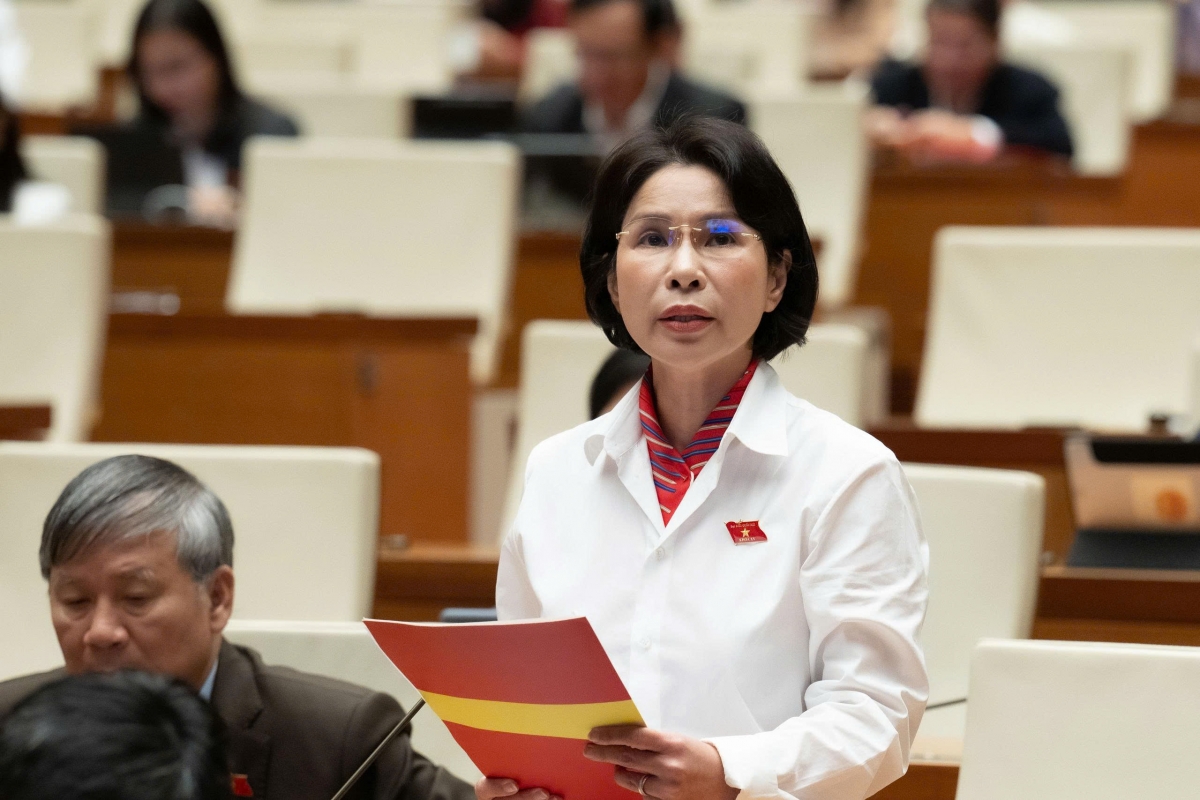
National Assembly Deputy Tran Thi Nhi Ha said there is still a lack of a comprehensive control mechanism for product groups that increase non-communicable diseases such as products containing a lot of sugar, a lot of salt, fast food, ultra-processed products, etc. Photo: National Assembly
Therefore, expanding the scope of regulation in Article 1 of the draft law is extremely necessary, creating a clear legal basis for building programs to improve public health, while at the same time specifically defining the responsibilities of each ministry, branch and government at all levels in managing and controlling risk factors to protect people's health, not only through medicine and hospitals, but also through a healthy living environment, fair socio-economic policies and positive living behaviors.
According to the delegate, our laws have provisions on preventing and combating the harmful effects of tobacco, alcohol, and beer - products that pose a direct risk to consumers' health. However, there is still a lack of a comprehensive control mechanism for product groups that increase non-communicable diseases such as products containing a lot of sugar, a lot of salt, fast food, ultra-processed products, etc.
Sharing the same opinion, delegate Pham Trong Nhan (HCMC delegation) said that we are witnessing a generation of young people who are obese early and get sick earlier, partly due to daily consumption habits. It is not difficult to find foods containing excessive sugar, salt, preservatives, flavor enhancers, and processed products that are rampant in supermarkets. Long-term use of these products leads to obesity, diabetes, high blood pressure, and metabolic disorders.
Chronic diseases are increasing alarmingly among young people. The cost of treating non-communicable diseases accounts for 70% of the total health burden. The golden population period is about to end, but the future of the young generation is still hanging in the balance with unfinished institutional gaps. According to delegates, laws need to guide consumption, protect a safe living environment and public health.
We have just applied special consumption tax on some products. We can refer to the country after 18 months of applying the policy of increasing tax and banning advertising of children's products, consumption has decreased by 25%.
Developed countries have long incorporated public health protection into all policies. Any economic strategy must assess its impact on people's health before implementation.
Delegate Tran Khanh Thu (Hung Yen delegation) commented that regarding disease prevention nutrition, the draft has provisions on nutrition for children, workers and the elderly, ensuring the application of nutritional principles in disease prevention. However, the provisions are still not really complete. The delegate proposed to clearly stipulate: "All people have the right to fair access to nutrition and food to achieve optimal nutritional status, contributing to improving health, implementing appropriate nutrition suitable for each subject, locality, region, and ethnicity; contributing to reducing the burden of disease, improving the stature, physical strength and intelligence of Vietnamese people".
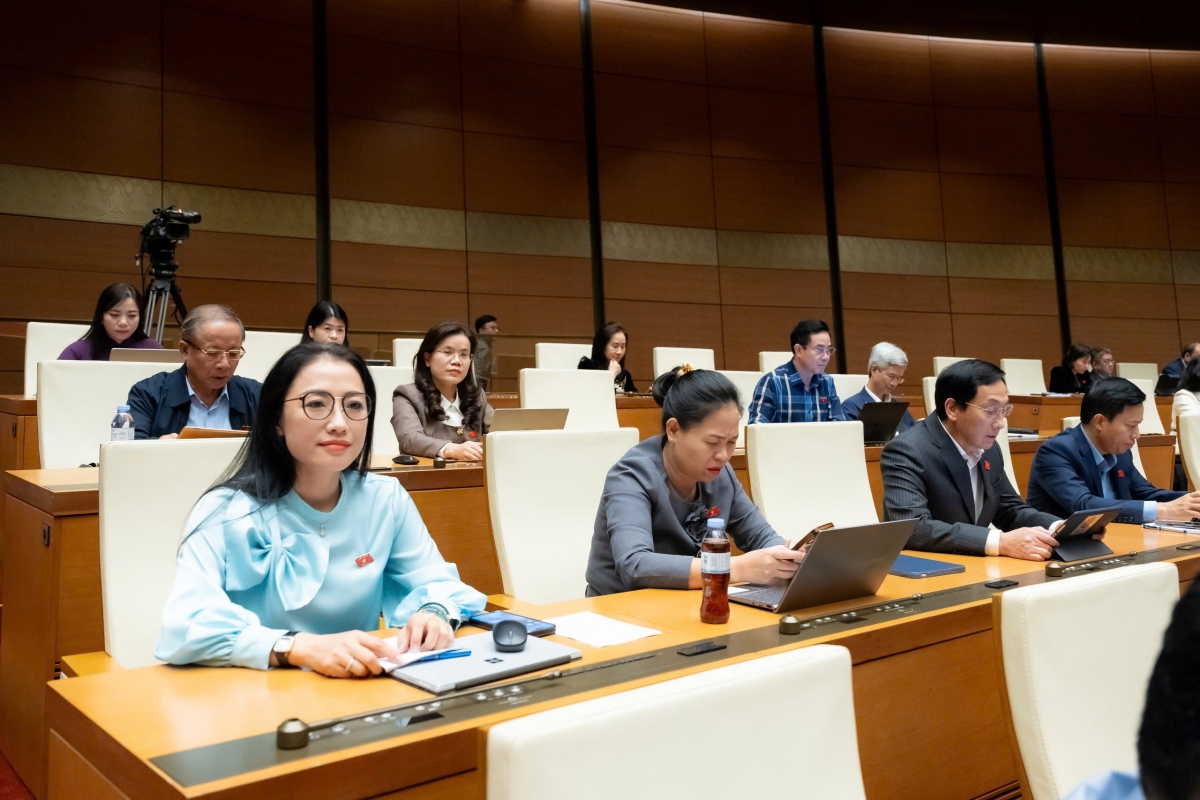
On the afternoon of October 10, 2025, the National Assembly discussed in the hall: the Population Law Project and the Disease Prevention Law Project. Photo of the National Assembly
Establish comprehensive, consistent and sustainable policies
Delegate To Ai Vang (Can Tho delegation) is concerned about funding for disease prevention. According to the delegate, the draft law should stipulate that the state budget should increase spending on health care, and allocate at least 30% of the health budget for preventive medicine.
According to Resolution No. 72 of the Politburo on a number of breakthrough solutions to strengthen the protection, care and improvement of people's health, it is necessary to correctly determine the position and role of preventive medicine and grassroots health care.
Resolution No. 18 of the 12th National Assembly on promoting the implementation of social welfare policies to improve the quality of people's health care also stipulates: "Increase the annual budget expenditure ratio for health care, ensure that the growth rate of health care expenditure is higher than the average growth rate of the state budget, and reserve at least 30% of the health budget for preventive medicine."
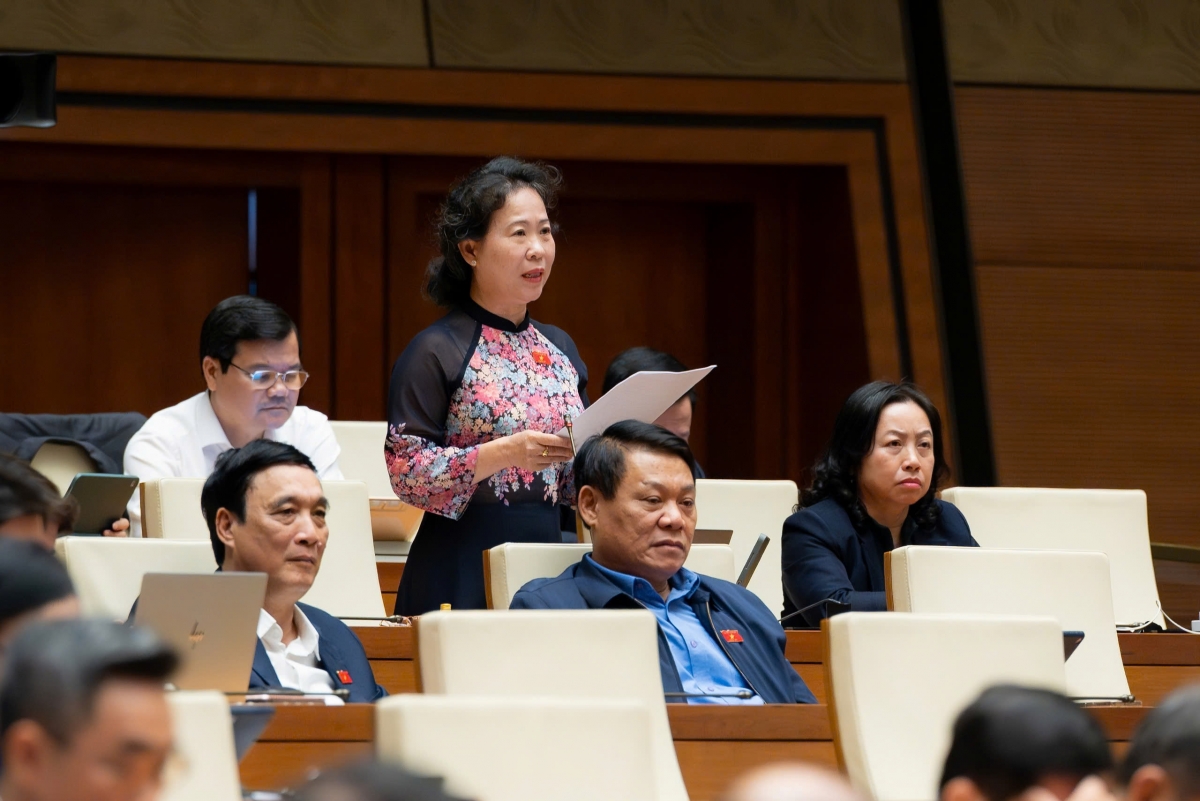
National Assembly Deputy To Ai Vang is concerned about funding for disease prevention. Photo: National Assembly
“Preventive medicine not only focuses on preventing infectious diseases, but also includes non-communicable disease prevention, chronic disease management, mental health care, school health, food safety, to improve people's overall health. Therefore, the draft law needs to specifically stipulate a sustainable financial mechanism to ensure resources for preventive medicine, including the expanded immunization program,” delegate To Ai Vang suggested.
Delegate Nguyen Anh Tri (Hanoi) suggested that health insurance should participate in the payment of some preventive medical services. In addition, social insurance also needs to have funds for disease prevention activities.
Regarding digital transformation in disease prevention, delegate Nguyen Anh Tri said that although the draft law has mentioned it, it is necessary to be more specific about the free policy and support for people to access digital health services. When people go for vaccination, health check-ups or monitor electronic medical records, they must clearly know the location, process and their rights. According to the delegate, including digital transformation content in the law is very important, it helps people easily access disease prevention, vaccination and health monitoring services, contributing to improving management efficiency and information transparency.
Delegate Tran Thi Nhi Ha said that to effectively prevent diseases, Vietnam should not only have some tax solutions as in the past, but more importantly, establish a comprehensive, synchronous and sustainable policy - aiming to change the structure of the food industry, while transforming social awareness about healthy consumption.
“We cannot continue to “put out fires” with treatment when preventable non-communicable disease agents are not yet well controlled. The Law on Disease Prevention needs to be stronger, more decisive, and one step ahead to protect people’s health in this aspect,” delegate Tran Nhi Ha suggested.
The delegate said that it is also important to establish a sustainable financial mechanism for disease prevention activities, meeting the requirements of fundamental innovation in the spirit of Resolution 72 of the Politburo. On that basis, the delegate proposed to add 2 more contents in Article 3: Add clause 5a: "The State has a policy to encourage the production and consumption of healthy products, while controlling and restricting products that are not beneficial to health according to the provisions of law". Add clause 10a: "The State has a sustainable financial policy for disease prevention activities, including the state budget, health insurance fund, tax policy and socialized sources".
The draft Law on Disease Prevention must be a "national defense law on health"
According to delegate Pham Trong Nhan, a modern nation not only defends with weapons but also with health. The draft Law on Disease Prevention is not only a medical law but also demonstrates the nation's capacity to protect life and the race.
From the warnings on cigarette packs to the Law on Prevention and Control of Harmful Effects of Alcohol and Beer, it has been proven that every step forward in public health has to face economic conflicts of interest. This time, the draft law is facing two choices: Either it is just a framework to retain the old law or it is an “institutional shield” to protect people’s health.
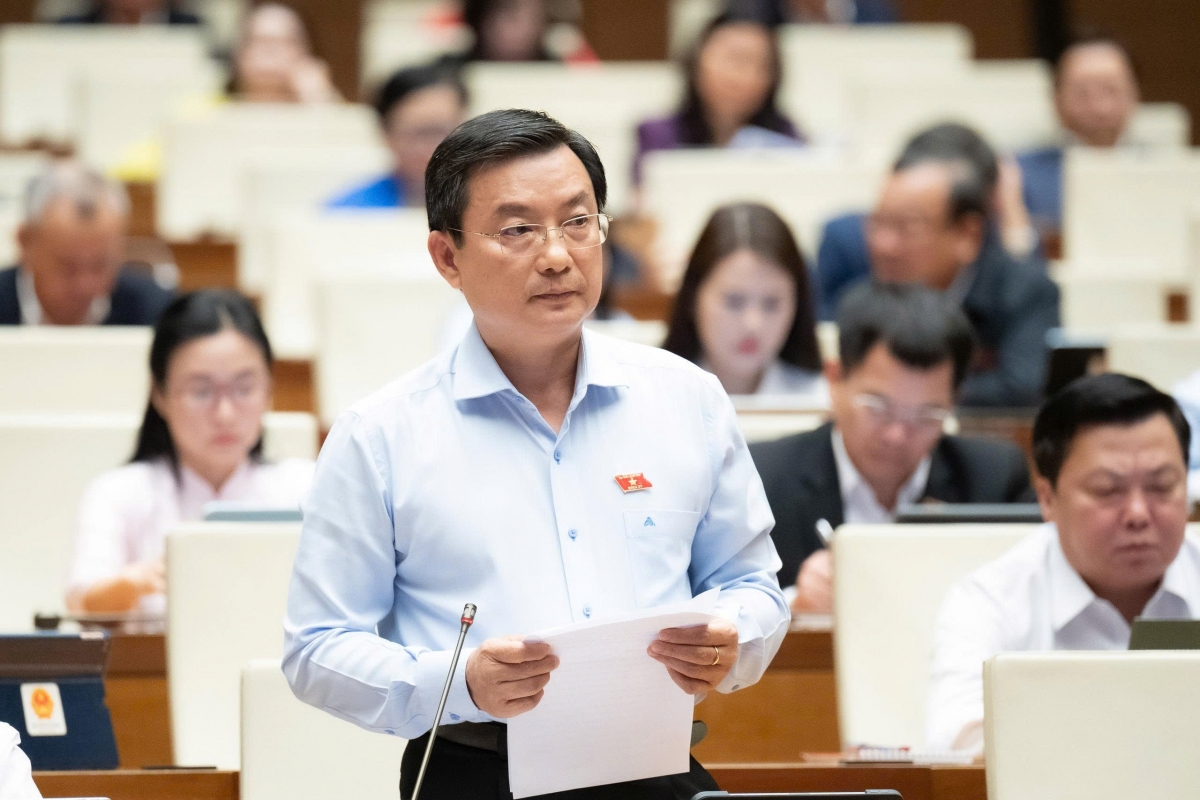
National Assembly Deputy Pham Trong Nhan said that a modern country not only defends with weapons but also with health.
In order for the Law on Disease Prevention to not only be a specialized branch of the Ministry of Health advising the Government to submit to the National Assembly, but also a framework law for the entire national development policy, delegate Pham Trong Nhan proposed that the National Assembly add the following 3 core groups of content:
First: Clearly stipulate that the Government is responsible for issuing and updating the list of products with health-risk factors, and at the same time, prescribe management measures including: warning labels, advertising restrictions, sales control in educational institutions and appropriate health tax policies. Within a certain period of time, the Government, the Ministry of Health and relevant ministries must complete detailed regulations, temporarily applied according to the criteria announced by the Ministry of Health.
Second: Ban marketing aimed at children under 16 years old on all platforms, clearly regulate school nutrition safety, ban sales or warning labels within schools according to recommendations of the World Health Organization (WHO) and in accordance with Vietnamese practice.
Third: It is necessary to encourage businesses to produce healthy food and beverages; at the same time, reduce taxes on natural, health-friendly products.
For the health sector, the Draft Law on Disease Prevention is the constitution that guarantees the right to live a healthy life, proactively prevent diseases, and protect the race.
“The draft Law on Disease Prevention must be a law on “national defense in health”. A country with national defense to protect its territory must have national defense to protect life. It is time to expand the institutional perspective not only to pave the way for economic development but also to lead in physical health and the quality of the race”, said delegate Pham Trong Nhan.
Receiving and explaining at the discussion session, Minister of Health Dao Hong Lan said that the approach to building the Law on Disease Prevention is in the direction of "framework law - original law". The Ministry of Health has reviewed relevant laws, from the Law on Medical Examination and Treatment, the Law on Food Safety, the Law on Environmental Protection to the Law on Education, to ensure compatibility and avoid overlap and duplication. "The Law on Disease Prevention will determine the principles, scope and general responsibilities, while technical and professional regulations will be specified in sub-law documents. This approach helps the law to be comprehensive, flexible and easy to update according to practice.
Minister Dao Hong Lan said that the Ministry of Health will fully absorb the opinions of National Assembly deputies, especially on the organization of the preventive health system, financial mechanisms, digital transformation, mental health and community nutrition. The law must be broad enough, open enough and vital enough so that when promulgated, it can be effectively implemented in the long term and does not need to be amended in the short term.
Nguyen Van /VOV.VN
Source: https://vov.vn/chinh-tri/kiem-soat-duong-do-an-che-bien-nhanh-de-the-he-tre-khong-beo-phi-som-post1244900.vov


![[Photo] Prime Minister Pham Minh Chinh attends the annual Vietnam Business Forum](https://vphoto.vietnam.vn/thumb/1200x675/vietnam/resource/IMAGE/2025/11/10/1762780307172_dsc-1710-jpg.webp)







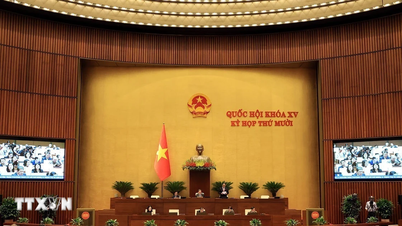



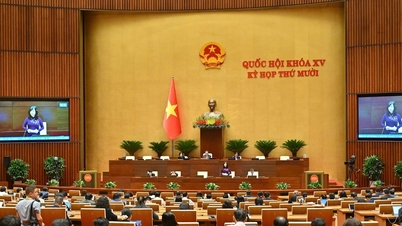

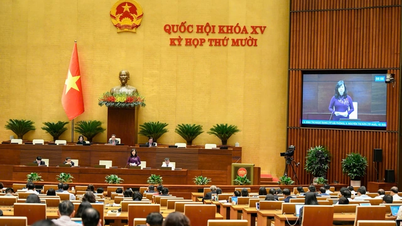






























































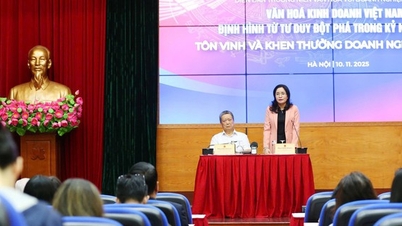

















![Dong Nai OCOP transition: [Article 3] Linking tourism with OCOP product consumption](https://vphoto.vietnam.vn/thumb/402x226/vietnam/resource/IMAGE/2025/11/10/1762739199309_1324-2740-7_n-162543_981.jpeg)











Comment (0)